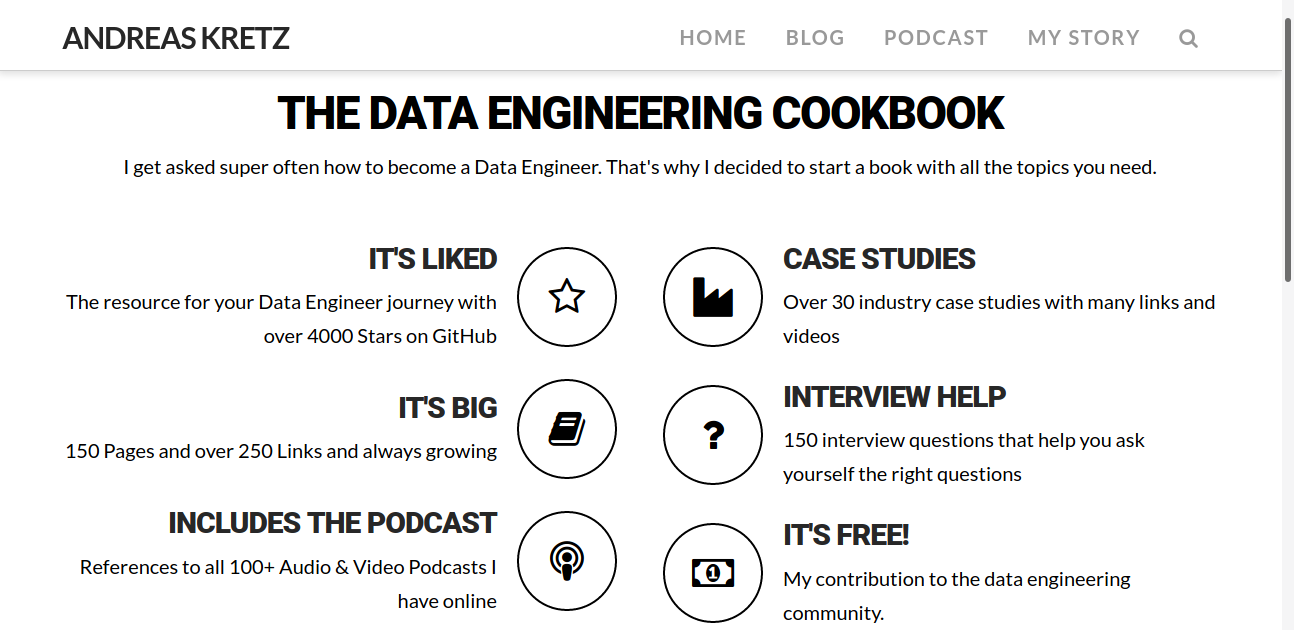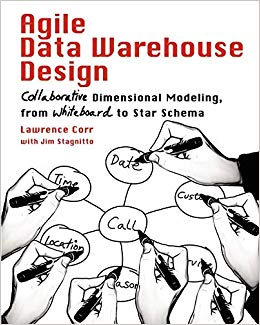Did you know that ‘Data Engineer’ is the fastest-growing role in the industry?
Currently, most data science aspirants are still focused on landing the coveted role of a data scientist. That’s understandable – all the hype in the media and the community glorifies the role of a data scientist. But it’s the data engineer that’s emerged as the dark horse.
Which isn’t really surprising, is it? Data science professionals spend close to 60-70% of their time gathering, cleaning, and processing data – that’s right down a data engineer’s alley!
Tech behemoths like Netflix, Facebook, Amazon, Uber, etc. are collecting data at an unprecedented pace – and they’re hiring data engineers like never before. There hasn’t been a better time to get into this field!
Unfortunately, there is no coherent path designed to become a data engineer. Most data science aspirants haven’t even heard of the role – they tend to learn about it on the job.
I’ve put together a list of data engineering books to help you get started with this thriving field and make sure you’re acquainted with the various terms, skills, and other nuances required.
And why books?
A lot of successful people attribute their success to reading books. In fact, Analytics Vidhya’s Founder and CEO Mr. Kunal Jain reads one book every week! There is no substitute for books, it’s still one of the best resources you would want to get your hands on.
Books are a vital way of absorbing information on Data Engineering. So let’s begin!
1. The Data Engineering Cookbook by Andreas Kretz
There is a lot of confusion about how to become a data engineer. I’ve met a lot of data science aspirants who didn’t even know this role existed!
Here is an ebook by Andreas Kertz that has elaborate case studies, codes, podcasts, interviews, case studies, and more. I consider this to be a complete package to enable anyone to become a data engineer.
And the icing on the cake? This ebook is free! Yes, you can instantly get started with it. Learn, practice, and prepare for your data engineering role now!
Click here to access – The Data Engineering Cookbook
2. DW 2.0 – The Architecture for the Next Generation of Data Warehousing by The Father of Data Warehousing W.H. Inmon
This book describes the future of data warehousing that is technologically possible today, at both an architectural level as well as a technology level.
I really like how the book is neatly structured and covers most of the topics related to data architecture and its underlying challenges, how can you use the existing system and build a data warehouse around it, and the best practices to justify the expenses in a very practical manner.
This book is designed for:
- Anyone who aspires to become a data engineering professional
- Organizations that want to induct this capability into their systems
- Data architects
- DBA’s
- System designers, and
- Data warehouse professionals
DW 2.0. is * Written by the “father of the data warehouse”, Bill Inmon, a columnist and newsletter editor of The Bill Inmon Channel on the Business Intelligence Network.
This one is not to be missed! Here is where you can grab a copy – Amazon.com.
3. Agile Data Warehouse Design: Collaborative Dimensional Modeling, from Whiteboard to Star Schema by Lawrence Corr
This is a great book. Lawrence Corr provides a comprehensive and step-by-step guide to capturing data warehousing and business intelligence requirements and convert them into high-performance models by using a technique called model storming (model + brainstorming).
Additionally, you’ll come across a concept called BEAM, an agile approach to dimensional modeling for improving communication between data warehouse designers and business intelligence stakeholders.
Source this book at Amazon.com
4. The Data Warehouse Toolkit: The Definitive Guide to Dimensional Modeling by Ralph Kimball
What do you wish for as a data scientist?
How about getting data that’s clean and reliable? With all the business value captured and presented well in the data, you would definitely wish for accurate and robust data models, high application agility and well-designed models as the final outcome.
How would you feel if someone just granted you these wishes and made your dream to become a champion data engineer come true? So, why wait for that ‘someone’ to grant your wishes when you can find a way to chalk your path and get these wishes granted by yourself by simply reading this book!
Yes, this book is the third edition is a complete library of updated dimensional modeling techniques, the most comprehensive collection ever. It covers new and enhanced star schema dimensional modeling patterns, adds two new chapters on ETL techniques, includes new and expanded business matrices for 12 case studies, and more.

You can grab a copy of it here – Amazon.com
5. Learning Spark by Holden Karau
Data is being generated in huge volumes today, a scale we can only imagine. So much data plays a vital role in increasing the complexity of operations and that has sparked new developments in the field of data engineering.
This cracking book by Holden Karau offers a valuable reference guide for all graduate students, researchers, and scientists interested in exploring the potential of Big Data applications.
Dive into the world of innovations in the way you acquire and massage the data, the ultimate goal is to get the best and most classified data for your machine learning model. Spark is the most effective data processing framework in enterprises today.

Get a copy today!! – Amazon.com
6. Spark: The Definitive Guide: Big Data Processing Made Simple by Bill Chambers
Data Engineering is a multi-disciplinary field with applications in control, decision theory, and the emerging hot area of bioinformatics. There are no books on the market that make the subject accessible to non-experts.
So, if you are just starting off and need a good book to learn everything about data engineering, then Spark, a fast cluster computing framework that is used for processing, querying and analyzing big data, is the tool that you should learn and this is your book to read.
All the theory and practical concepts are explained in a user-friendly manner and easy to understand language.

Grab a copy today at Amazon.com
7. Big Data: Principles and best practices of scalable realtime data systems by Nathan Marz
This book is for managers, advisors, consultants, specialists, professionals, and anyone interested in Data Engineering assessment.
It describes a scalable, easy-to-understand approach to big data systems that can be built and run by a small team. Following a realistic example, this book guides readers through the theory of big data systems, how to implement them in practice, and how to deploy and operate them once they’re built.
So, if you are the CEO/CXO of an organization and want to introduce the Data Engineering practice into your organization, then you should grab this book and access the data engineering pattern of your business.
Grab a copy here – Amazon.com
8. Designing Data-Intensive Applications: The Big Ideas Behind Reliable, Scalable, and Maintainable Systems by Martin Kleppmann
The concepts of this book revolve around the task of collecting data and distilling useful information from that data. Five discrete sections covered in this book are:
- Data scalability
- Consistency
- Reliability
- Efficiency, and
- Maintainability
Martin Kleppmann helps you navigate this diverse landscape by examining the pros and cons of various technologies for processing and storing data.
Here is where you can source it from – Amazon.com
9. Big Data, Black Book: Covers Hadoop 2, MapReduce, Hive, YARN, Pig, R, and Data Visualization
The objective of this book is to create a new breed of versatile Big Data analysts and developers, who are thoroughly conversant with the basic and advanced analytic techniques for manipulating and analyzing data.
So, if you want to start learning about data engineering tools, then this book is a must-read. It holistically covers all the tools that help you meddle with data and craft strategies to gain a competitive edge.
Source your copy here – Amazon.com
Conclusion
Becoming a data engineer is not an easy task. It requires a deep understanding of tools, processes, and techniques to be able to extract the best out of any structured/ unstructured data.
You can sketch out a data engineering path for yourself by reading this exhaustive article – Want to Become a Data Engineer? Here’s a Comprehensive List of Resources to get started.
Hope you liked my collection of Data Engineering books! I would definitely like to know if there are any books you would recommend. Please share the names in the comments section below.













Thank you very much for this list. I suppose that this list is adressed for computer scientist, software engineers, and professional programmers who knows several programming languages. For statisticians and mathematicians who want to become data scientist and implement a DWH I recommend the book of Djoni Darmawikarta: Dimensional Data Warehousing with MySQL. I know the books of Inmon, Kimball and Corr but they are very theoretical, conceptually and often redundant. The book of Darmawikarte shows how to implement a DWH with SQL and shored procedure and does also provide the code to do that and this in a way that it works. You learn DWH-concepts by coding.
Hi Fabio, Thanks for recommending these books! We will be sure to check them out and share them with the community. Thanks, Pranav